O. T. Jackson (1862-1948)
Visionary and Co-founder of Dearfield, Colorado
Oliver T. (Toussaint L'Ouverture) Jackson was one of Colorado's more intriguing characters. Born in Oxford, Ohio, Jackson moved to Colorado in 1887 where he worked as a caterer in Denver and then a farmer. In 1909, while a messenger to Colorado Governor John Safroth, Jackson took his idea for an African American colony to the governor. Gov. Safroth helped Jackson select homestead land in Weld County.
In 1910, Jackson began advertising for colonists. Late in 1910, Dr. J.H.P. Westbrook, an early settler, suggested the name Dearfield at a community meeting because the fields would be very dear to the settlers making their home there. Starting with only seven families with little farming experience, Jackson's settlement grew to a prosperous colony of 60 families by 1921. Dearfield represents the determination of the African American community to have a path to independence and prosperity.
Dorothy Ann Witt King (1913-2014)
Leader and Innovator
Dorothy Ann Witt King was a community service and civil rights activists who advocated for economic opportunity and education for African Americans in Denver for 70 of her 100 years.
Born in Cheyenne, Wyoming, King would often accompany her mother on shopping trips to Denver where she met her husband, Frank King, the first African American to attend the School of Engineering at the University of Colorado.
Dorothy King's legacy includes her work with girls in the Denver Parks and Recreation and the Whittier Recreation Center, including the CANTEEN, a place where girls could dance, have fun and learn, and SHOWAGON, a traveling talent show that made its rounds in Denver parks. King's unfamiliar legacy is the creation of Personal Services, Inc., in the 1970s. Personal Services was a laundry and custom ironing service in the Denver area that employed women who had limited skills and income.
Thomas Washington Bean (1911-1987)
Life of "Firsts"
Thomas Washington Bean was an astute African American business pioneer. He came to Denver in 1911 on the Denver & Rio Grande Railroad, as a dining car steward. His life was full of "firsts," which included operating music vending machines in Denver's businesses, being the first African American to operate a taxicab service in Denver, and being the first African American to serve on the Denver Board of Adjustment Zoning, from 1957 until 1980.
He had the ability to understand the housing needs of the Denver minority community, which allowed him to successfully devote his life to providing homes and living accommodations for low income families. In 1951, Bean financed and built the Bean Apartments at 2100 Franklin Street. He personally developed and arranged financing for African Americans to purchase or rent housing when available resources were non-existent for minorities at the time.
Dianne Reeves (1956-)
"Breathtaking virtuosity, improvisational prowess"
Dianne Reeves was born in Detroit, Michigan, and raised in Denver, Colorado. She grew up surrounded by music. Her father was a singer, her mother played the trumpet, and her Uncle Charles (Charlie) Burrell was a bassist for the Denver Symphony Orchestra.
At age 16, Reeves sang with the George Washington High School band in Denver. The band performed in Chicago at the National Association of Jazz Educators Convention where Reeves caught the attention of Clark Terry, former trumpeter for the Duke Ellington Orchestra, who became her mentor and introduced her to famous jazz legends.
Reeves studied music at the University of Colorado before moving to Los Angeles. Her singing career took off and she began recording as a solo artist and touring with Harry Belafonte and Sergio Mendes, respectively. In 1987 she was the first vocalist signed to the revived Blue Note label. To date, Reeves has recorded 16 albums, received five Grammy nominations and won two Grammys. Although Reeves travels and performs extensively, she now resides in Denver.
George Leslie Brown (1926-2006)
Nation's First African American Lieutenant Governor
George Leslie Brown, former lieutenant governor of Colorado was the first African American to hold statewide office. Brown became the nation's first African American lieutenant governor since Reconstruction.
Brown was born on July 1, 1926, in Lawrence, Kansas. He served in pilot training with the Tuskegee Airmen toward the end of World War II. Brown studied journalism at the University of Kansas and did graduate work at the Harvard Business School, the University of Colorado and the University of Denver. Brown moved to Denver where he worked as a reporter and editor for The Denver Post before entering politics.
In 1955, Brown made history when he was elected to the Colorado House of Representatives. He was later elected to the state Senate, where he served 18 years, and was reelected to five consecutive four-year terms.
In 1979, Brown left Colorado and joined the Grumman Corporation where he was later promoted to senior vice president in charge of the firm's regional offices, becoming the first African American corporate officer in a major U.S. aerospace company.

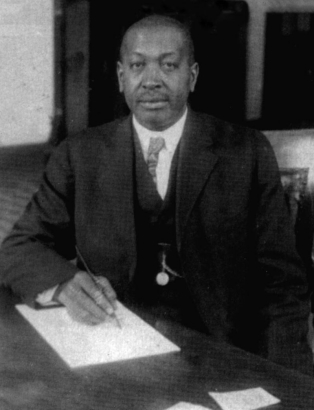
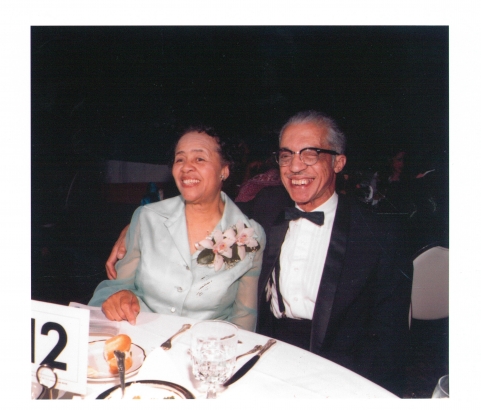
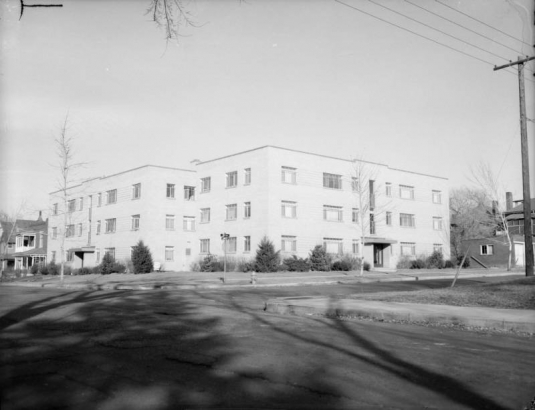
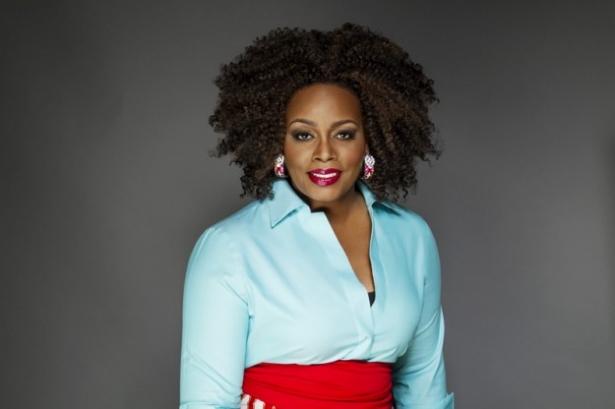
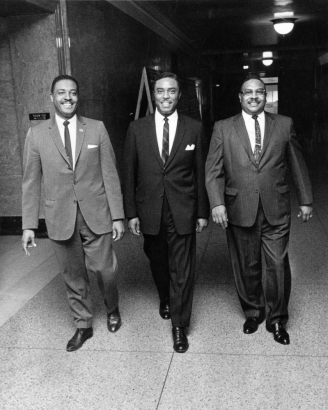
Comments
Tamara Rhone,
Tamara Rhone,
Thank you for your comment.
Vetile DeMaribeau James,
Vetile DeMaribeau James, April 3, 1918- July 11,1979 bo and raised in Denver Colorado. He attended and graduated from Whittier, Cole and Manual High School. He furthered his education by attending Aggie (Colorado State University).
He was employed as a Biological Chemist with National Jewish Hospital conducting research resulting in several writings in conjunction with Drs. H.J. Corper, M.D., PhD. and Maurice L. Cohn Ph.D. on Tuberculosis. The research was printed and published in the American Review of Tuberculosis edition #65 in 1952.
He was the First Black Marine from Denver, however, was not allowed to enlist in Denver, therefore in 1942 he enlisted in Oklahoma City, OK. During his military career, he was an instructor of Atomic Biological for the Chemical Defense School at El Toro Marine Corps. in San Diego, California, also the Radar Station at Buckley Fields, Colorado. Also during his service in the Marine Corps. he received numerous medals and commendations including a letter of commendation from President Harry S. Truman upon his discharge.
His further employment prior to moving back to Denver included the Los Angeles County as an investigator, Cedars of Lebanon Hospital in Los Angeles and the Los Angeles Department of Sanitation.
He taught at U.C. Boulder and a Chemist for the U.S. Geological Survey in Colorado until his death in 1979.
These are impressive accomplishments for a Colorado resident. Feel free to contact me 310-714-4909/720-685-1614
Deborah C. James-Mitchell
Ms. James-Mitchell,
Ms. James-Mitchell,
Vetile DeMaribeau James's accomplishments are indeed impressive. Thank you for sharing his remarkable story!
Ms. Nelson, Until today, I
Ms. Nelson, Until today, I had no idea that what I had written about my father was recorded in the Denver Public Library. I would like to thank you for publishing my father's information and accomplishments. As you can tell I am extremely proud of him. Could I provide you with a photograph of him to be included with what you published and please advise as to if your articles are permanent? Feel free to contact me via email at "demaribeau@gmail.com" or by phone. Thank you again, Deborah James-Mitchell
I went to high school in
I went to high school in Aurora and Denver in the 70’s but was expelled for inciting a riot. Actually I just refused to stand and recite the Pledge of Allegience and a bunch of football players supplied the riot. Anyway I recall a prominent black rights activist named Mike Clark I think? Denver PD ran him down in a high-speed chase and shot up his van as well as his passenger I seem to recall. Can you steer me to a link? Ironically it was black football players who stood up for me and told the others my protest was perfectly patriotic and protected. This was about 1971.
Why not include Gloria, 1st…
Why not include Gloria, 1st black women on RTD board? I cannot remember her last name.
Add new comment